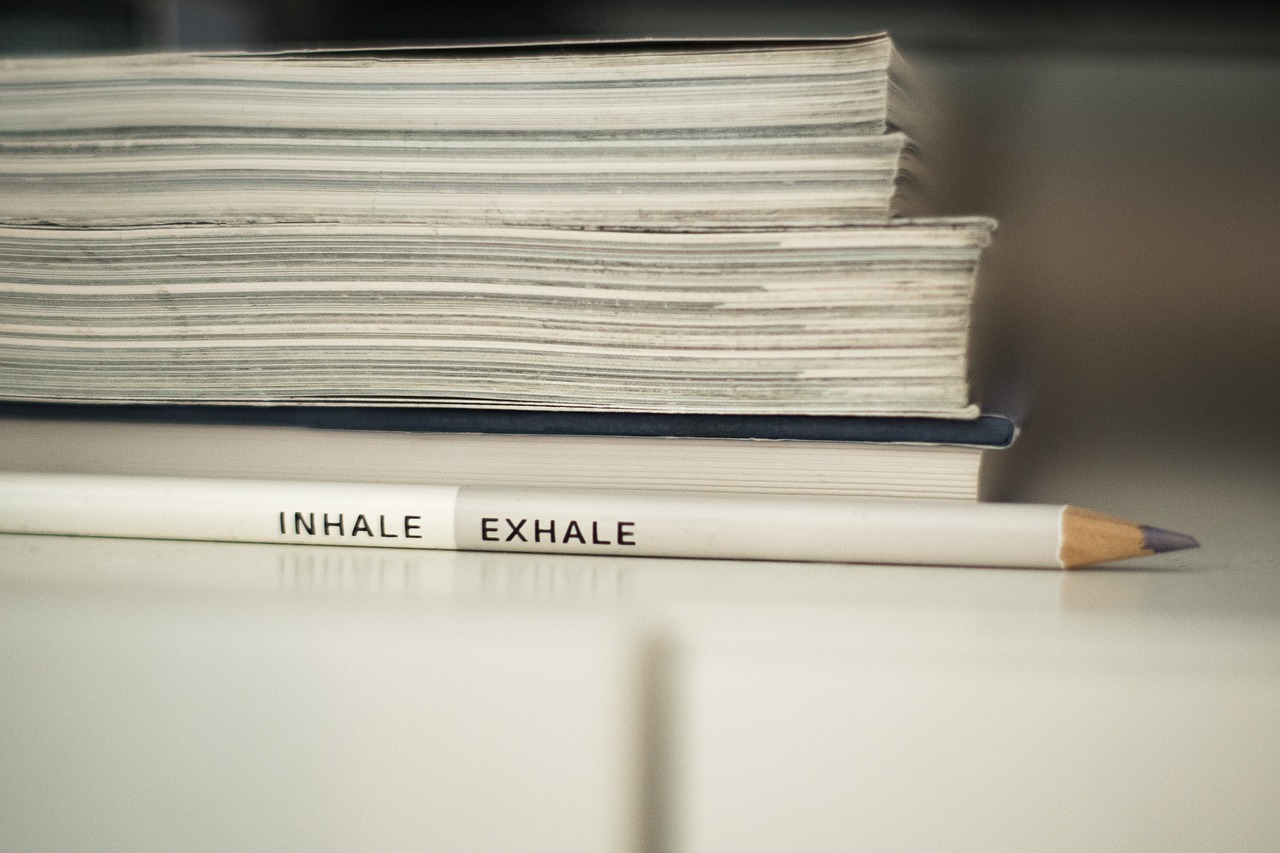How to Declutter Your Mind - Tips for Mental Clarity
Are you feeling overwhelmed by the constant stream of thoughts racing through your mind? Do you struggle to focus and find mental clarity in your daily life? If so, it's time to declutter your mind and regain control of your thoughts. In this article, we will explore effective strategies and practical tips to help you organize your mind, reduce stress, and improve your overall mental well-being.
One of the key practices to achieve mental clarity is to engage in mindfulness exercises. By staying present and aware of your thoughts, you can reduce mental clutter and enhance your decision-making skills. Cultivating a habit of focusing on the present moment can help you declutter your mind and improve your overall clarity.
Journaling is another powerful tool for reflection and processing your thoughts. By writing down your feelings, ideas, and goals, you can gain valuable insights into your mental patterns and declutter your mind. Journaling allows you to explore your thoughts in a structured way, leading to a clearer and more organized mindset.
Establishing a daily routine is crucial for reducing mental overwhelm and maintaining clarity throughout the day. By prioritizing tasks, setting goals, and allocating time for relaxation, you can streamline your activities and prevent mental clutter. A structured routine helps you stay focused and maintain mental clarity amidst the chaos of daily life.
To prevent information overload, it's essential to set boundaries on the amount of information you consume daily. By reducing screen time, unsubscribing from unnecessary notifications, and focusing on quality content, you can prevent mental clutter and improve your ability to concentrate. Limiting information overload is key to enhancing mental clarity and reducing distractions.
Incorporating deep breathing exercises into your daily routine can help calm your mind and reduce anxiety. Deep breathing promotes relaxation, increases oxygen flow to the brain, and enhances mental clarity. By practicing deep breathing techniques regularly, you can clear your mind and improve your overall mental well-being.
Physical exercise is another powerful tool for decluttering your mind and boosting mental clarity. By engaging in regular physical activities, you can boost endorphins, reduce stress, and improve your mood. Exercise promotes overall well-being and mental clarity by helping you clear your mind and focus on the present moment.
Cultivating a positive mindset is essential for decluttering negative thoughts and enhancing mental clarity. By practicing gratitude, affirmations, and self-compassion, you can shift your focus towards optimistic thinking and maintain a balanced perspective. Fostering positivity is key to decluttering your mind and achieving emotional well-being.
If you find yourself struggling to manage mental clutter on your own, don't hesitate to seek professional support. Consulting a therapist or counselor can provide you with coping strategies, tools for self-reflection, and personalized techniques to achieve mental clarity and emotional well-being. Professional support can offer valuable insights and guidance on managing mental clutter effectively.

Practice Mindfulness Daily
Mindfulness is a powerful practice that can significantly impact your mental clarity and overall well-being. By engaging in mindfulness exercises daily, you can train your mind to focus on the present moment, letting go of distractions and unnecessary clutter. Picture your mind as a serene lake, undisturbed by ripples of worries and anxieties. With mindfulness, you can cultivate a sense of calm and awareness that allows you to navigate through life with clarity and purpose.
One effective way to practice mindfulness daily is through meditation. Take a few minutes each day to sit quietly, focusing on your breath and observing your thoughts without judgment. This simple act of being present can help declutter your mind, reduce stress, and improve your ability to concentrate on tasks at hand. It's like giving your mind a refreshing break amidst the chaos of everyday life.
Another technique to incorporate mindfulness into your daily routine is mindful walking. Take a leisurely stroll and pay attention to each step you take, the sensations in your body, and the environment around you. By grounding yourself in the present moment, you can clear your mind of unnecessary clutter and connect with the beauty of the world around you.
Practicing mindfulness daily is not about striving for perfection but rather about embracing the journey of self-discovery and mental clarity. It's about being kind to yourself, acknowledging your thoughts and emotions, and letting go of what no longer serves you. By making mindfulness a part of your daily routine, you can experience a profound sense of peace, focus, and balance in your life.

Journaling for Reflection
Discover effective strategies to declutter your mind and achieve mental clarity. Learn practical tips and techniques to organize your thoughts, reduce stress, and improve focus for a healthier and more balanced mindset.
Journaling is a powerful tool for self-reflection and mental decluttering. By putting pen to paper, you can unload your thoughts, emotions, and ideas, gaining insights into your inner workings. It's like cleaning out a cluttered closet; journaling helps you sift through the mess in your mind, organizing and making sense of it all.

Establish a Routine
Establishing a routine is like creating a roadmap for your mind to follow, guiding you through the day with clarity and purpose. Imagine your mind as a busy intersection, with thoughts and tasks rushing in all directions. By setting a routine, you are essentially installing traffic lights and signposts to organize the chaos and keep everything flowing smoothly.
A well-structured routine acts as a mental anchor, grounding you in a familiar pattern of activities that provide stability and predictability. Just like a well-rehearsed dance routine, following a set schedule allows your mind to operate on autopilot for routine tasks, freeing up mental space for more challenging endeavors.
Think of your routine as a series of interconnected gears in a clock, each turning smoothly and synchronously to keep time. When each part of your day fits together seamlessly, you create a harmonious rhythm that promotes mental clarity and efficiency.
Setting specific time slots for different activities helps you allocate your mental resources effectively, ensuring that you dedicate ample focus to each task without feeling overwhelmed. It's like compartmentalizing your mind into neat, organized folders, making it easier to access information and switch between tasks effortlessly.
Moreover, a routine provides a sense of accomplishment and progress as you tick off tasks from your daily checklist. This sense of achievement boosts your confidence and motivates you to tackle more challenging goals, further enhancing your mental clarity and productivity.
By establishing a routine, you create a framework for success, setting yourself up for a day filled with purpose, productivity, and mental clarity. Remember, consistency is key in maintaining a routine that works for you, so embrace the structure and watch your mind thrive in the organized chaos of daily life.

Limit Information Overload
Discover effective strategies to declutter your mind and achieve mental clarity. Learn practical tips and techniques to organize your thoughts, reduce stress, and improve focus for a healthier and more balanced mindset.
Do you ever feel overwhelmed by the constant stream of information bombarding you from all directions? In today's digital age, it's easy to get caught up in a whirlwind of emails, social media updates, news alerts, and notifications. This information overload can clutter your mind, making it difficult to focus and think clearly.
One way to combat this mental clutter is to set boundaries on the amount of information you consume daily. Instead of mindlessly scrolling through endless feeds, take a proactive approach to filter out the noise. Unsubscribe from unnecessary notifications, mute irrelevant channels, and focus on quality content that adds value to your life.
By limiting information overload, you can create space in your mind for more meaningful thoughts and ideas. This decluttering process allows you to prioritize what truly matters, leading to improved focus, enhanced productivity, and a sense of mental clarity.

Practice Deep Breathing Exercises
Deep breathing exercises are a powerful tool to calm the mind, reduce stress, and enhance mental clarity. By focusing on your breath, you can center yourself in the present moment and promote relaxation. One effective technique is diaphragmatic breathing, where you inhale deeply through your nose, allowing your abdomen to expand, and exhale slowly through your mouth. This practice not only calms the mind but also increases oxygen flow to the brain, improving cognitive function and mental clarity.

